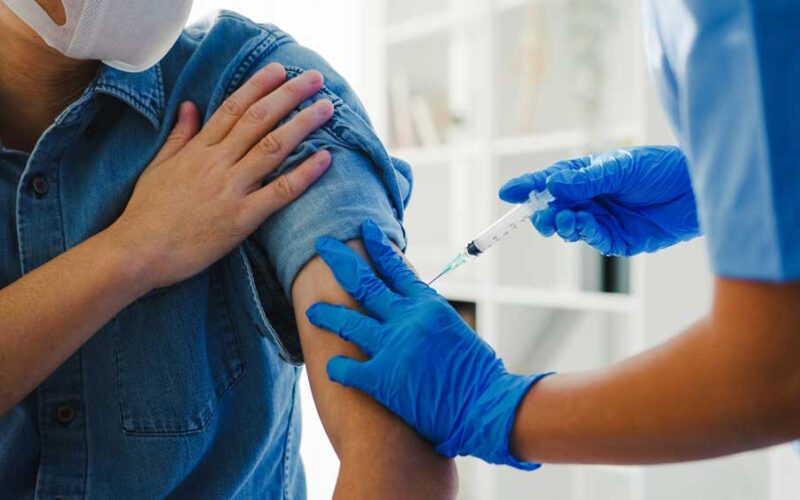1. What do South Koreans think about the need for vaccines?
A vaccine is a biological preparation used to increase the immune response to a disease. In other words, vaccines in the body play a role in recognizing and remembering the antigens of the disease to destroy. Measles killed about 500 people a year in the United States from 1912 to 1963. However, the development of the vaccine has reduced the number of measles patients by 80% (Centers for Disease Control and Prevention, 2020). Also, smallpox, a virus that had a high mortality rate, disappeared from the world in the 20th century due to the effect of a vaccine (World Economic Forum, 2020). As such, we reduce the incidence of diseases through the use of vaccines. Through this COVID-19 situation, the world was stopped by an infectious disease. We should feel the need for vaccines because one small virus has the power to shut down the world.
2. What do South Korean parents think about vaccines for infants?
Infants are vulnerable to diseases because their immune systems have not yet been completed. So, most parents in Korea are interested in their children’s national essential vaccinations. Thanks to the high interest of parents, the status of essential vaccinations in Korea shows the highest vaccination rate in infants and toddlers. However, there is a different opinion on the COVID-19 vaccine. In the case of infants, the COVID-19 fatality rate is low, and their parents are concerned about the side effects of the COVID-19 vaccine. In addition, there was an incident in Korea in which a teenager died due to COVID-19. So, Korean parents once protested against the “vaccine pass” of infants (Cha, 2021). For this reason, the COVID-19 vaccination rate for infants is lower than the national mandatory vaccination rate.
3. What do young people think of vaccines?
Young people think they are healthy and do not feel the need for additional vaccines for national essential vaccinations. They are unaware of the link between themselves and the additional vaccine, as they believe that they completed the national mandatory vaccination when they were young. So, young people have the lowest vaccination rate compared to infants and the elderly. However, there is a different opinion on the COVID-19 vaccine. In Korea, there are a “vaccine pass” and restrictions were placed on leisure life, visiting public places, and using restaurants. Therefore, the number of young people receiving vaccines to exclude disadvantages has increased, and the COVID-19 vaccination rate is showing a high rate (Service (KOCIS), 2021).
4. What do the elderly think of vaccines?
The elderly are vulnerable to diseases because their immunity is low. As immunity is declining, Korea is emphasizing that vaccines for the elderly should strengthen their immune systems. Therefore, the elderly feel the need for a vaccine, and they have a high interest in vaccines. There is a similar trend for COVID-19. However, if a person has an underlying disease, they cannot be vaccinated against COVID-19, so the rate is lower than the national mandatory vaccination rate.
5. Conclusion
In Korea, there are different opinions on national essential vaccinations by age. Opinions on national essential vaccinations show that parents of infants and the elderly are highly interested, but young people are less interested. However, contrary to the national mandatory vaccination rate, the COVID-19 vaccine shows that young people have a high interest in vaccination and a high vaccination rate.
[Reference]
- Centers for Disease Control and Prevention (2020). Measles. [online] CDC. Available at: https://www.cdc.gov/measles/about/history.html [Accessed 22 July 2022].
- Cha, S. (2021). S.Korea parents protest over student vaccine pass mandate. Reuters. [online] 9 Dec. Available at: https://www.reuters.com/world/asia-pacific/skorea-parents-unions-protest-over-student-vaccine-pass-mandate-2021-12-09 [Accessed 23 July 2022].
- World Economic Forum. (2020). Smallpox – the only infectious disease we’ve ever eradicated. [online] Available at: https://www.weforum.org/agenda/2020/04/how-smallpox-successfully-eradicated-covid [Accessed 23 Jul. 2022].
- Service (KOCIS), K.C. and I. (2021). Gov’t to expand vaccine pass, re-limit scale of private gatherings : Korea.net : The official website of the Republic of Korea. [online] www.korea.net. Available at: https://www.korea.net/NewsFocus/policies/view?articleId=207415 [Accessed 22 July 2022].
